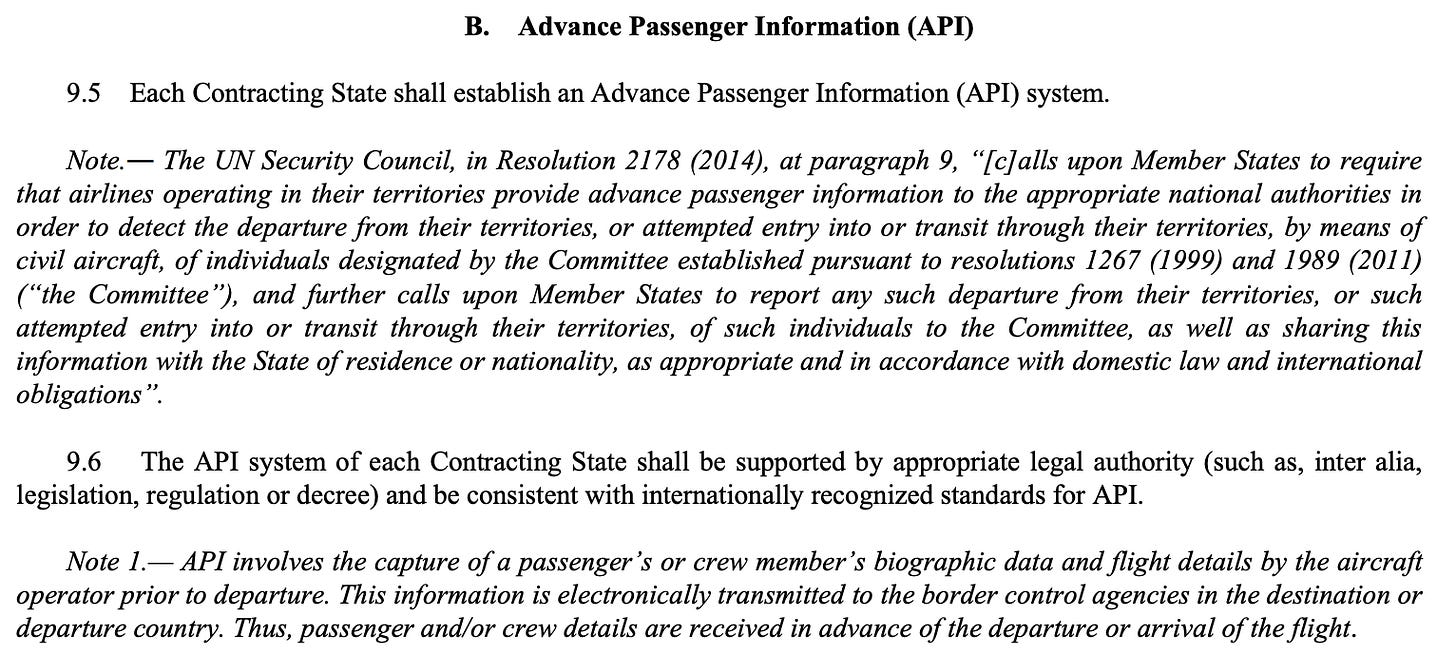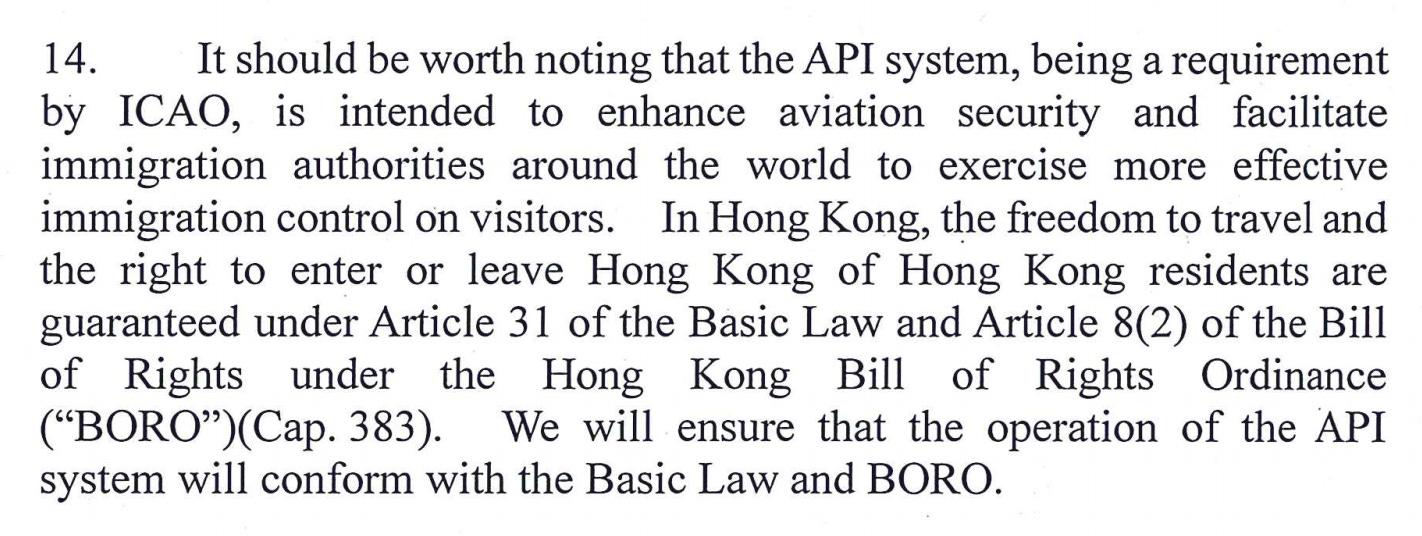For a Distrusted Government, One Objective is Swapped With Another
Immigration law amendments are just the latest flashpoint

On 2 December 2020, the Hong Kong government published the text of the Immigration (Amendment) Bill 2020. Among the 26 proposed amendments to the Immigration Ordinance is a clause which allows the Secretary for Security to make regulations to empower the Director of Immigration to direct that a passenger or a member of the crew of a carrier may or may not be carried on board the carrier.
Coming as it does around the same time that the British National (Overseas) visa scheme opens for applications, with some Hong Kongers intending to move to the UK to escape the political situation in their home city, this clause has been described as a potential means to prevent emigrants from leaving Hong Kong.
This has always been an extraordinary suggestion, not least because it appears to be unenforceable in practice. How is the government supposed to know which travellers are leaving Hong Kong for the purpose of emigration and which ones are leaving for other reasons? In order for the suggestion to be free of potentially massive loopholes, unprecedented restrictions would need to be introduced for Hong Kong residents travelling abroad for any reason at all. It’s a prospect that is hard to take seriously for a business hub which, like everywhere else in the world, has its share of politically active and politically apathetic residents.
Consequently, this suggestion could be gently dismissed as a social media exaggeration, without needing to look deeper at the intent of the legislative proposals. However, on 11 February, the Hong Kong Bar Association published a submission on the proposed amendment and made the following assessment: “The regulations to be made under the proposed new section 6A(1)(b) would, however, authorise the Director to prohibit any person, including Hong Kong residents, from leaving Hong Kong.”
With an influential voice in Hong Kong’s public life, the HKBA’s contribution has led to a fresh wave of media coverage of the proposed amendment and its implications, meaning that it is time to stop dismissing the suggestion and put it to the test.
In its Legislative Council Brief on the bill, the government elaborated on the objective of the amendment by making reference to a 2018 update to the Convention on International Civil Aviation. The update requires UN member states, if they have not already done so, to implement a system known as Advance Passenger Information.
Despite only becoming compulsory with this recent update to the Convention, API has a longer history in international aviation. It became compulsory under domestic U.S. law after the 9/11 attacks, when the Transportation Security Administration was established. API works alongside many other systems to ensure that, when the U.S. authorities make a decision to deny someone entry to the United States, it is not necessary to wait until that person arrives at a U.S. airport. Once you make a booking for a flight, you will be screened before and during the time you present yourself at your departure airport, and thanks to API, it’s possible to set off a red flag and be denied boarding on a flight bound for the United States.
In the context of Hong Kong, the focus is on potential asylum seekers, properly known as non-refoulement claimants, rather than potential terrorists. Hence, the LC Brief envisages that the proposed amendment to Hong Kong’s immigration laws would “strengthen our measures to prevent potential claimants from departing from overseas airports and heading to Hong Kong to make a claim immediately upon arrival.”
It is no secret that the Hong Kong government views it as a priority to decrease the number of non-refoulement claims it must process each year. Viewed in that context, the clause allowing the Director of Immigration to deny someone entry on board an aircraft would appear to be rationally connected to a very different objective to what the HKBA’s submission envisages. Indeed, the HKBA’s submission seems to have overlooked or dismissed this stated objective entirely:

Upon making some of these points on social media in recent days, I received the following comment from a Hong Konger whose perspective, I believe, illustrates the reason why the amendment has been framed so differently to the context presented above:
I probably don't know what I'm talking about, but as long as we are dealing with a government like this, it doesn't matter what a law is *about* or is meant to be. It's about what it *can do*.
This argument, of course, cannot be proven or disproven, and relies on established preconceptions. It highlights starkly the trust deficit that the Hong Kong government has with a vocal segment of its population when the right of residents to travel and to emigrate, enshrined in the Basic Law, is viewed as being potentially under threat.
It also has the effect of marginalising the challenges faced by those who come to Hong Kong to make non-refoulement claims, and may soon find themselves unable to travel there at all. There’s no doubt that most who would have made the trip would eventually be told that their claims are unsubstantiated, and would then be removed from Hong Kong. But if this amendment were to prevent even one legitimate claimant from receiving protection that could ameliorate a tragic set of life circumstances, then it is all the more unfortunate that this very real prospect is being overlooked in place of an imagined threat to residents’ right to leave.
It is healthy and proper that legislative proposals should be scrutinised robustly, and it makes good sense to view a broadly defined power with a sceptical eye. In the midst of all the suggestions that emigrants could be blocked from leaving, it seems not to have occurred to anyone that this bill could actually serve a different political purpose. If the bill passes, the possibility exists that activists such as Kenneth Roth and Benedict Rogers, who have previously been told upon arrival in Hong Kong that they will not be permitted to enter, could instead be given that news at their departure airport, before even boarding their flight. Though this is less dramatic than the prospect of large numbers of aspiring emigrants being trapped in Hong Kong, it is a more realistic scenario.
Ultimately, it is only once the bill has been passed and the regulations implemented that we can judge whether the government’s assurance to protect the Basic Law right of residents to travel freely has been kept. No assurances made prior to the bill’s passage are likely to soothe the fears of a segment of the population that so deeply distrusts its government, and can scarcely imagine that emigration will not be met with a harsh response.




